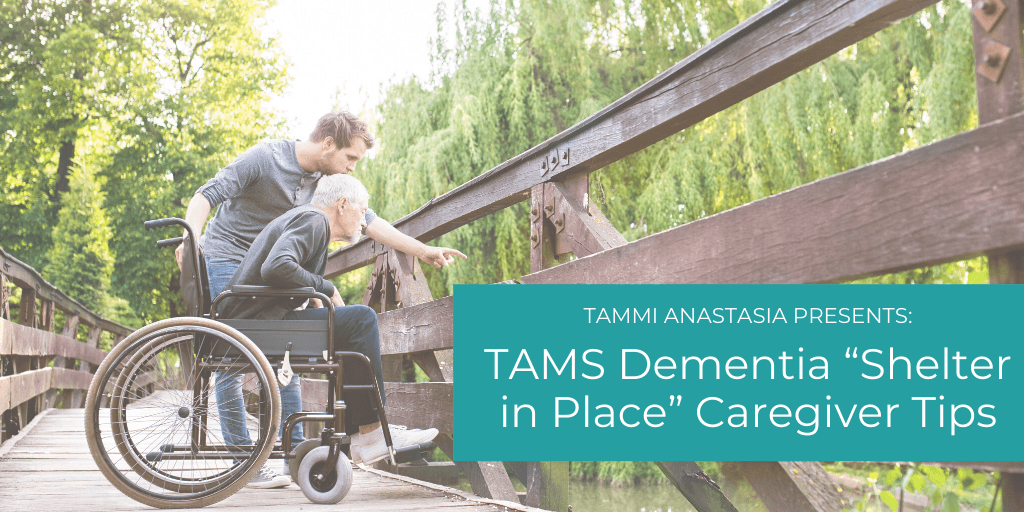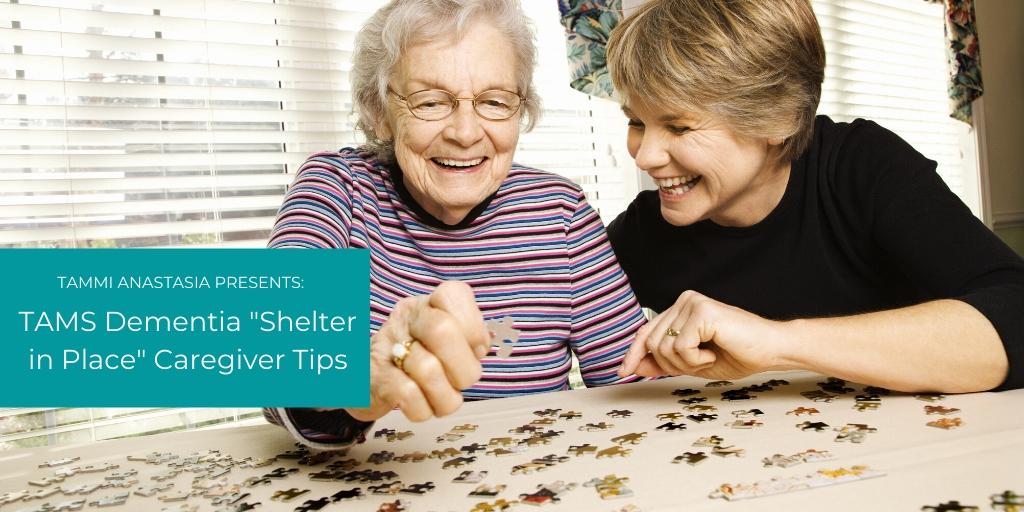
Dementia `Shelter in Place` Caregiving Tips by TamsADS
Dee Bustos
Caregiving Tips
Apr 10, 2020
5 min read
This blog was originally published on TamsADS by Tami Anastasia, M.A., CSA, and Alzheimer’s & Dementia Consultant. In addition to specializing in helping family caregivers navigate the day to day demands and challenges caring for a loved one with Alzheimer's or Dementia, she is also an Alzheimer’s Caregiver Support Group Facilitator, Health and Wellness Counselor, Senior Exercise Specialist, and author. If you’re taking care of a loved one with dementia, the shelter in place has probably placed more stress and demands on you more than you ever could imagine. It’s one thing to take care of a loved one with dementia under normal circumstances, but it’s another when you and your loved one have been quarantined in your home. You’re probably wondering how you’re going to survive “the shelter in place.” Below, I have provided some different dementia caregiver tips to help you survive the “shelter in place” so it’s not at the expense of your physical, mental and emotional well – being.
Establish & Try to Maintain a Consistent Routine
French health minister recently provided a warning to coronavirus patients to avoid taking painkillers from the Non-steroidal Anti-inflammatory Drugs (NSAIDs) like ibuprofen and aspirin because they might worsen symptoms by increasing receptors that the virus uses to infect cells. He urged people to take acetaminophen instead. There are no data to back up this statement. Physicians currently recommend acetaminophen or NSAIDs for reducing fever and mild symptoms of COVID-19 infection. Try to do the same basic activities in the same order and around the same time every day. For example, try to get up around the same time of day, followed by a morning hygiene routine, then breakfast, morning activities/chores around the house, followed by lunch, afternoon activities/chores around the house, dinner, evening activities, bedtime.
Dementia Friendly Communication:
- Try to avoid arguing, correcting, explaining, convincing, rationalizing - Saying “we” and “us” increases cooperation. Replace saying “you” with “we” or “us” when asking your loved one to do something. For example, say it’s time for “us” to [brush our teeth, take our medication, go for a walk] instead of saying it’s time for “you.” - Pay attention to your body language, tone of voice, facial expressions – do your best to smile more, use a calm tone of voice, make eye contact, nod in a friendly manner, approach them from the front - Walk away from a situation if you’re feeling frustrated or getting angry - Keep your questions and answers short and simple– the fewer words the better - Give them one-sentence explanations - Ask one question at a time - Only give them one or two choices – for example, do you want to wear the blue or green shirt? - Avoid asking them “why?” or if they “remember?” - Speak slowly and at their eye level - Avoid being forceful or insistent - Reminisce about their past – ask questions about their childhood, high school or college years, when you were dating Validate – paraphrase and repeat what your loved one is saying to you so your loved one feels heard and understood
Dr. Ayati`s COVID-19 Updates: Truth or Myth?

Locked Down Care Community Tips by TamsADS




